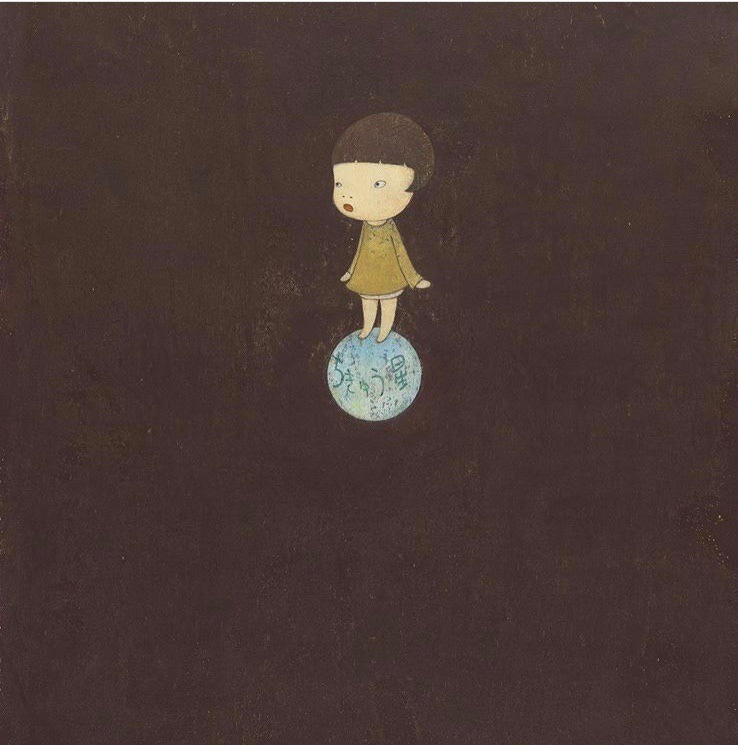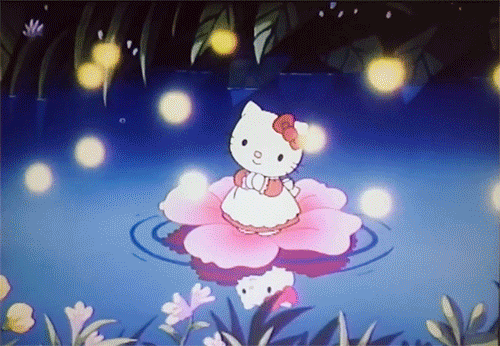Loneliness is a Guide
That Brings Me Closer to You and Me
I’ve been reading “Polysecure” by Jessica Fern, a book about attachment styles, relationships, and consensual non-monogamy. I’m reading it in my childhood home, reflecting on the ways that I become attached to people and how I act accordingly. The book talks a lot about how our parental figures shape the relationships we form in our adulthood, which is really interesting for me to read as I spend time with my parents in my childhood home. Sometimes they treat me as they did when I was a child and it is deeply painful to re-experience. Although our relationships have grown so much since then, there are many days when I feel like a lonely child again.
I’ve been feeling quite spiritually lonely. Though I love my solitude, and I adore spending time alone, it is the feeling of not being able to express myself with a fullness that makes me feel alone. I have to code-switch, cover up my queerness, and I perpetually feel guilty; as if the person I would really want my parents to meet is a version of me that would not make them proud. You know, some real inner child shit. Always seeking the approval of those who have found it hard to express it. I know that is part of the experience of going home, and I do not want to feel entitled to my parent’s understanding of these new languages I speak or the queer theories I try to practice. It is a realm of its own, a realm I am privileged enough to thrive in. However, the fact remains that I feel lonely here and my needs are still important. Whenever I feel that way, it is habitual for me not to look within, but to look without. Many times I look toward external validation, the online world, and for the attention and affections of others.
My loneliness is usually spiritual and comes from feeling a lack of closeness with the people physically near me. Over the last four years, closeness has also changed in meaning to me. While it used to mean something way more instantaneous and physical, it is now inseparable from deep communication, transparent nonjudgement, and mutual liberation. I feel so close to my friends in New York, and coming home to Australia I was reminded that I had some relationships to rebuild. Some people would be open to it, and some would not.
While it has been challenging, I have found this revisitation to childhood quite fruitful in its revelations. My addiction to validation shows me how social media and the online realm are built to temporarily stifle this existential loneliness that we feel. Our relationships with Capitalism show us that we have externalized validation as achievable, attainable, and purchasable. We are sold quick fixes to our loneliness that come in the form of shallow consumption and instant gratification, and we end up feeling even lonelier. There are very few things that tell us how to spiritually move through this loneliness, let alone teach us why we may be feeling this way. I think it has a lot to do with the fact that we are not taught to be our full feeling selves in our relationships with each other and ourselves. We are afraid of the loneliness, but we are afraid of its alternatives too.
One day I went to the beach by myself. I needed to spend time alone and ground with the Ocean. I was feeling this intense loneliness again, the type that made me feel reckless and thirsty. I drove an hour away and sat by the beach, and as corny as it may sound, I realised that I was not alone. I felt wholly seen, held, and accepted by the unconditional ebb and flow of the waves, and so I quickly sprinted in to Her loving embrace.
I’m embarrassed to admit this, but sometimes when I find myself doing something ethereal and freeing, I imagine myself being watched. I imagine somebody perceiving me, thinking I am beautiful, and falling in love with me. Very manic pixie dream girl. On this hot summer’s day, as I was running into the Ocean, hips swaying and hair flowing dramatically in the breeze, I imagined somebody looking at me lovingly in awe. I imagined my crushes seeing me feeling so free and so divinely connected to my surroundings. And then I stopped in my tracks. Why was I fantasizing about myself through the eyes of another? Why couldn’t I simply just look at myself that way?
This told me a lot about a deep craving to be seen, and perhaps even a sick pleasure I have in feeling surveilled. It showed me that I’m so used to having a watchful eye on me that I almost want that eye to love what it sees. Do I know what it means to be seen without being surveilled? It told me that I had a complicated and toxic relationship with surveillance, and that I had almost grown fond of it, despite the fact that it made me feel unsafe. It told me that those toxic pleasures of my existence are built on maintaining a performance pre-determined by somebody else; probably by the heteropatriarchal male gaze. As much as I speak about my frustrations of social media, I also know that I can be co-dependent on the short bursts of attention it provides. Because of this, I have forgotten how to see even myself, and I rely on people to applaud a theatrical version of me. I become more spiritually lonely.
So then I imagined an alternative vision. I imagined that the figure who was watching me with adoring eyes was myself. Not just angelically running into the Ocean, but also snacking on the beach with my stomach out, or anxiously fidgeting with the pages of my book. What if, before we fret over how others perceive our every action, we look through our own eyes to see ourselves? I know we have to codeswitch and perform to stay safe in many situations, but sometimes, when we are experiencing an intimate or quiet moment by ourselves, or even a moment that is full of anxiety, self-doubt, and unknowing, what if we dedicated a moment to look at ourselves with eyes of love and understanding, the ways we would look at someone we love? And then we expand that, into our relationships with each other, and further into our culture, so we can also feel safe and reciprocally seen with each other? Maybe then we would feel a little less alone.
As I sat on the quiet beach with this newfound revelation, I saw myself, no longer performing and feeling relaxed. I felt safe. This was a lesson, and loneliness was my guide.
When I talk about moving through loneliness, I am neither suggesting that we spend all our time alone, nor that we rely on seeking validation solely from our relationships. Instead, I am suggesting that we see ourselves with loving eyes, and also invite the possibilities of finding honest connections with each other where we can feel wholly seen and heard. In “Polysecure”, Jessica Fern talks about how the healthiest relationships are those with a balance of both personal autonomy and nourishing connection. I often veer to one extreme or the other, either being super guarded in fear of losing my autonomy or feeling my walls coming down and becoming completely absorbed in my relationships with people. Finding the balance allows us to move through loneliness because it asks us to honour our relationships with others and ourselves. It encourages me to ask myself the questions: Do I feel lonely with myself? Do I feel lonely in my relationships? What needs to change?
My relationship with my parents is slowly changing. My mother and I are communicating quite openly, and the other day she offered to hug me, which rarely happened in my childhood. I’m proud of us, because I know that we’re both combatting our own spiritual loneliness, and it finally feels like we’re seeing each other with compassion instead of projecting who we think the other should be. We are sharing our needs, and we are both changing because we are committed to our autonomy and our connection.
While loneliness might strike us to seek instant gratification from people we know cannot provide it for us, it also illuminates the personal needs that we have been taught to neglect. To no longer feel lonely is to feel wholly seen and appreciated by those you share closeness, including yourself. It means to ask you loved ones to fully see you, or to meet at common places where you can see each other as more than projections of company. We are equally afraid of closeness and loneliness because they both require us to move with immense and non-performative honesty. Loneliness has challenged my addictions to validation, asking me to interrogate the unnerving pleasures I get from being accustomed to a life of feeling surveiled and unsafe. While loneliness nudges me to vocalize my needs and nourish my true relationships, it is also a guide that asks me to look at myself with loving and understanding eyes. Loneliness is a guide that brings me closer to me and you.
I made a playlist for those who are feeling the energy of loneliness. It is high energy, and I hope that you can transmute that energy into dance and feel closer to yourself by the end of it. You deserve it.




Thank you. Bookmarking this post, as I imagine I will want to come back to it often
This was so beautifully put, feeling so seen on so many levels. Thank you for sharing your experience with this vulnerable and insightful feeling <3 this is what the world needs! xo